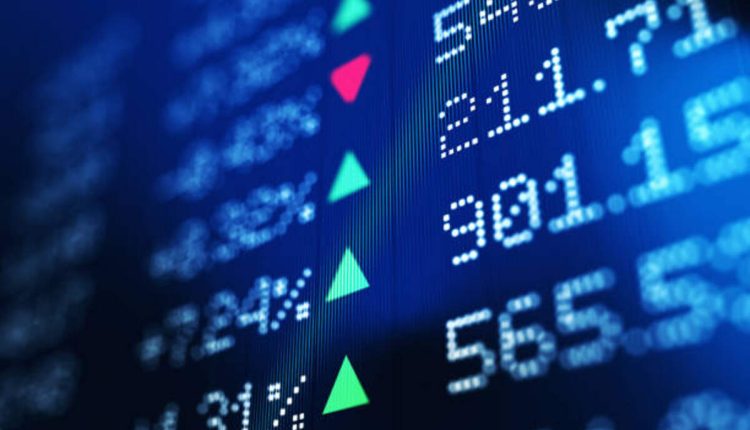Forex Capital Markets
International capital markets allow companies, governments, and individuals to borrow or invest in foreign currencies with lower borrowing costs and greater returns than available through domestic lending markets. Furthermore, this market enables speculators to gain from changes in foreign currencies’ prices through speculation. Have the Best information about forex robot.
Forex trades typically involve not exchanging money but instead betting on price movements – similar to stock trading – rather than exchanging currency directly.
Currency Pairs
Currency pairs are among the most frequently traded instruments on forex markets. A currency pair consists of two separate currencies – a base currency and a quote currency – with each pair purchased simultaneously involving both. When purchasing, one unit of quote currency must be exchanged in order to buy one unit of base currency at its exchange rate.
EUR/USD: One of the most frequently traded currency pairs in forex trading, this pair represents the value of the euro versus the dollar. A trader purchases euros and simultaneously sells dollars through this trade.
GBP/USD is one of the most liquid currency pairs, with low spreads and high volumes. Traders often use this pair to speculate on the relationship between the UK and European economies.
USD/CNH Traders can take positions on the CNH (Offshore Chinese Yuan) through IG’s forex products. As this pair is unregulated by China and offers traders an opportunity to capitalize on positive correlations, this pair is especially appealing as a haven investment during times of market instability.
Exchange Rates
Exchange rates are one of four elements that comprise the foreign exchange market, serving to give businesses and individuals exposure to global markets without physically holding currency in their possession. Businesses trading internationally may be exposed to currency risk and often seek strategies for mitigating this exposure in order to boost profitability.
The world market is an interconnected global and highly liquid market where trillions of dollars change hands daily. Operated by an array of financial institutions linked through electronic trading platforms, its operation allows it to stay open 24 hours a day as traders from Asia pass their open positions at the end of each business day to traders in Europe, who then pass them off to North Americans before repeating this cycle.
The currency market is driven by supply and demand from various parties, such as commercial companies, central banks, other financial institutions, and individual investors/speculators, as well as their economic outlooks and political stability.
Forward Contracts
Forward contracts allow businesses to secure an exchange rate for future trades, enabling them to develop budgets and business plans with greater certainty. However, forward points carry risks that must be carefully considered prior to using them.
Interest rate fluctuations between signing and maturity could cause losses or gains to arise from forward contracts. Furthermore, counterparty risk can create greater exposure and a higher potential risk of default than with traditional contracts.
Forward contracts provide two primary settlement options for their contracts: physical delivery or cash settlement. Physical delivery entails physically transferring assets, while cash settlement does not. Physical delivery may be advantageous when companies need to protect future costs or receipts against price volatility, while cash settlement can help shield future costs or receipts. However, this omits any opportunities to benefit from further favorable market movements if the market shifts in your favor – something which may prove incredibly challenging when operating under tight budgetary or cash flow restrictions.
Futures Contracts
Futures contracts, also known as forward contracts, involve an agreement between two parties to exchange an asset at a predetermined date in the future. They typically trade on an exchange and contain standardized contract specifications.
Investors use futures contracts as a hedging strategy against the price volatility of an underlying asset, particularly businesses whose revenue streams fluctuate based on currency values. Currency traders also utilize futures contracts as a hedge against changes in interest rates.
Futures positions do not reflect their total underlying value until they are “trued-up” daily, which requires comparing the market value of a commodity deposited with a brokerage firm that holds the position to collateral held on account by the brokerage. Therefore, futures trading accounts typically require an initial margin deposit to open positions; using leverage can magnify both your profits and losses; consequently, it is wise to conduct thorough research of futures instruments before harnessing this power.
Options
Forex (foreign exchange, or forex) is an international currency trading market where foreign currencies are bought and sold to generate profit. Global economic forces drive it, and it operates quickly – however, it can be risky for individual retail speculators.
Options provide an attractive alternative to the highly volatile and risky forex market. They are derivative contracts based on the value of an underlying asset, allowing traders to pursue robust fundamental trading strategies similar to stocks or commodities.
Currency options enable investors to trade the underlying currency at a pre-defined exchange rate before the option expires, offering investors the chance to buy or sell at pre-set exchange rates before expiry. FX options pricing is complex and dependent on many factors, including the volatility of the underlying asset. In addition to the Garman-Kohlhagen model, various techniques for calculating options risk exposure exist, such as the Delta Gamma Theta Rhio and Vega models, which serve as important inputs into FX options strategy development.


